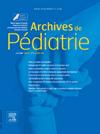长效生长激素在法国用于治疗生长迟缓症。
IF 1.3
4区 医学
Q3 PEDIATRICS
引用次数: 0
摘要
法国约有 10,000 名生长激素缺乏症(GHD)患儿每天都要注射重组人生长激素(rhGH)。虽然这种治疗方法长期以来一直被证明能有效恢复儿童的生长和新陈代谢,但每天注射rhGH也有一些局限性,例如难以坚持治疗,这可能会影响儿童时期的生长,也会影响成年后的新陈代谢。除了疾病负担和坚持治疗的障碍外,每日注射的相关义务也对患者及其家人的生活质量产生了负面影响。有一种假设认为,间隔 1 周甚至 1 个月注射一次生长激素可以提高依从性,减少治疗中断,优化生活质量和治疗效果,因此出现了新的长效生长激素(LAGH)。最近,长效生长激素(somatrogon MA)进入欧洲和法国市场,可能会引起相关家庭的大量需求,并可能引发有关其有效性、安全性和实际使用的问题。在许多问题(治疗有效性或无效终点、长期有效性等)仍未解决的情况下,需要许多实用和与实践相关的要点来指导处方医生。这些问题只能在未来通过汇编登记册和开展长期真实世界研究来解决。本文章由计算机程序翻译,如有差异,请以英文原文为准。
Long-acting growth hormone in the management of GHD in France
Approximately 10,000 children in France with growth hormone deficiency (GHD) are being administered daily recombinant human growth hormone (rhGH). Although this treatment has long proved efficient for restoring children's growth and metabolism, daily injections of rhGH have a few limitations, such as difficulties in terms of adherence to treatment, which may compromise growth during childhood but also metabolism in adulthood. In addition to the disease burden and besides the adherence hurdles, the obligations related to daily injection have a negative impact on the quality of life of patients and their families. The hypothesis that injections administered at intervals of 1 week, or even 1 month, could improve compliance, reduce treatment discontinuations, and optimize quality of life and therapeutic effectiveness has led to the emergence of new long-acting growth hormone (LAGH). Recent access to LAGHs (somatrogon MA) on the European and French market will likely be followed by a high demand from the families concerned and may raise questions on their effectiveness, safety, and practical use. Numerous practical and practice-related points are needed to guide prescribing physicians while many concerns are still left unresolved (treatment effectiveness or ineffectiveness endpoints, long-term effectiveness, etc.). These issues can only be addressed in the future by compiling registries and conducting long-term real-world studies.
求助全文
通过发布文献求助,成功后即可免费获取论文全文。
去求助
来源期刊

Archives De Pediatrie
医学-小儿科
CiteScore
2.80
自引率
5.60%
发文量
106
审稿时长
24.1 weeks
期刊介绍:
Archives de Pédiatrie publishes in English original Research papers, Review articles, Short communications, Practice guidelines, Editorials and Letters in all fields relevant to pediatrics.
Eight issues of Archives de Pédiatrie are released annually, as well as supplementary and special editions to complete these regular issues.
All manuscripts submitted to the journal are subjected to peer review by international experts, and must:
Be written in excellent English, clear and easy to understand, precise and concise;
Bring new, interesting, valid information - and improve clinical care or guide future research;
Be solely the work of the author(s) stated;
Not have been previously published elsewhere and not be under consideration by another journal;
Be in accordance with the journal''s Guide for Authors'' instructions: manuscripts that fail to comply with these rules may be returned to the authors without being reviewed.
Under no circumstances does the journal guarantee publication before the editorial board makes its final decision.
Archives de Pédiatrie is the official publication of the French Society of Pediatrics.
 求助内容:
求助内容: 应助结果提醒方式:
应助结果提醒方式:


